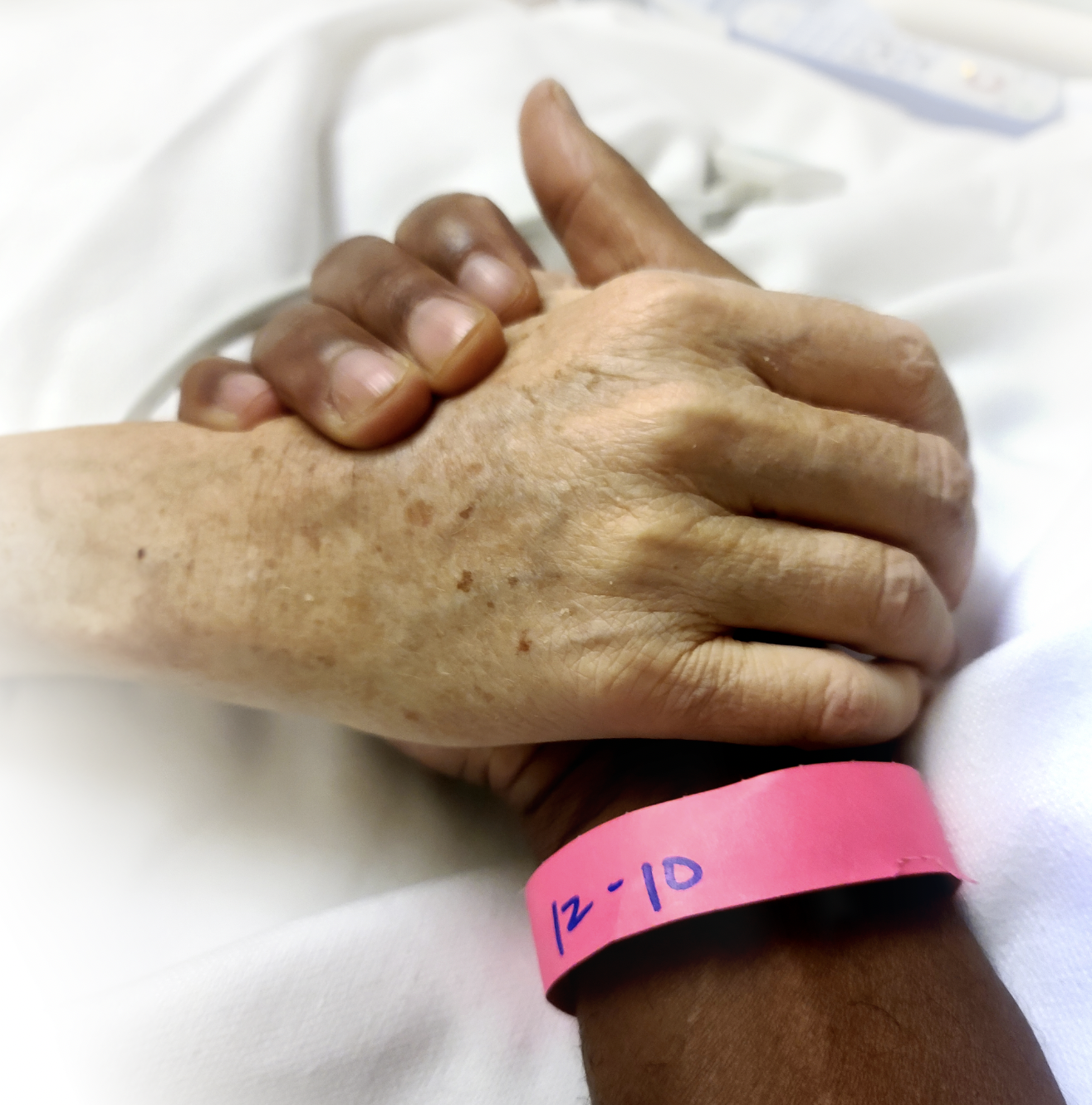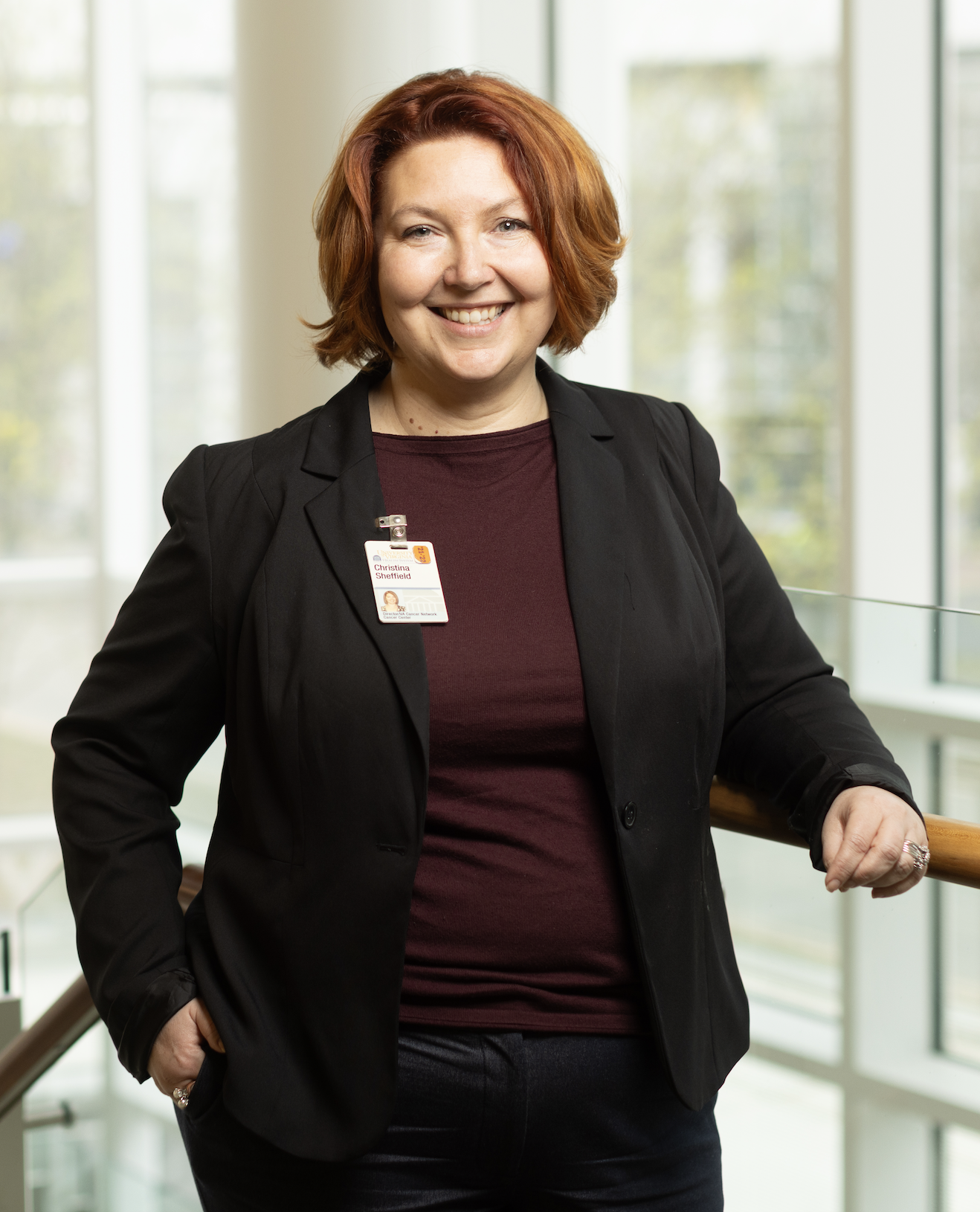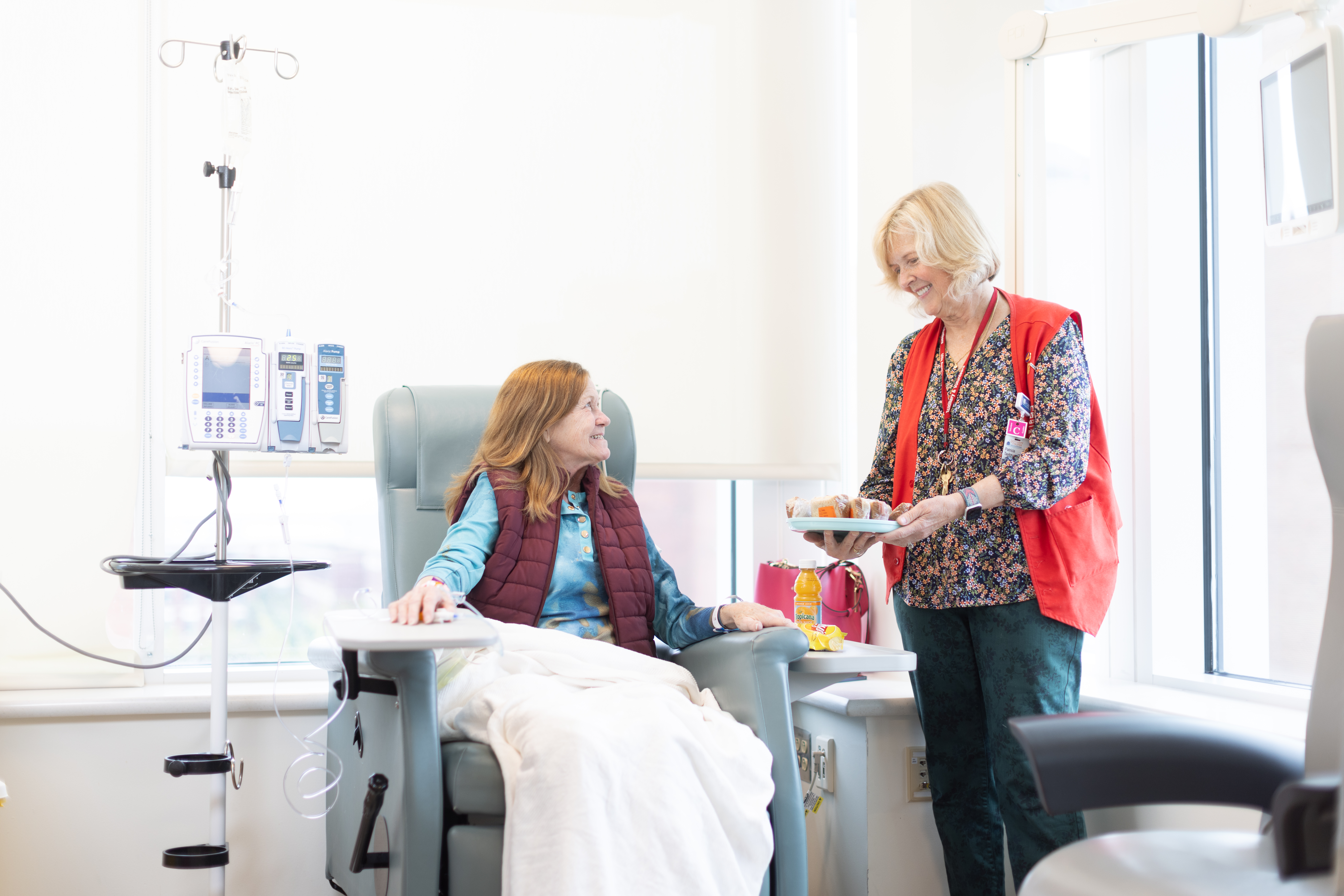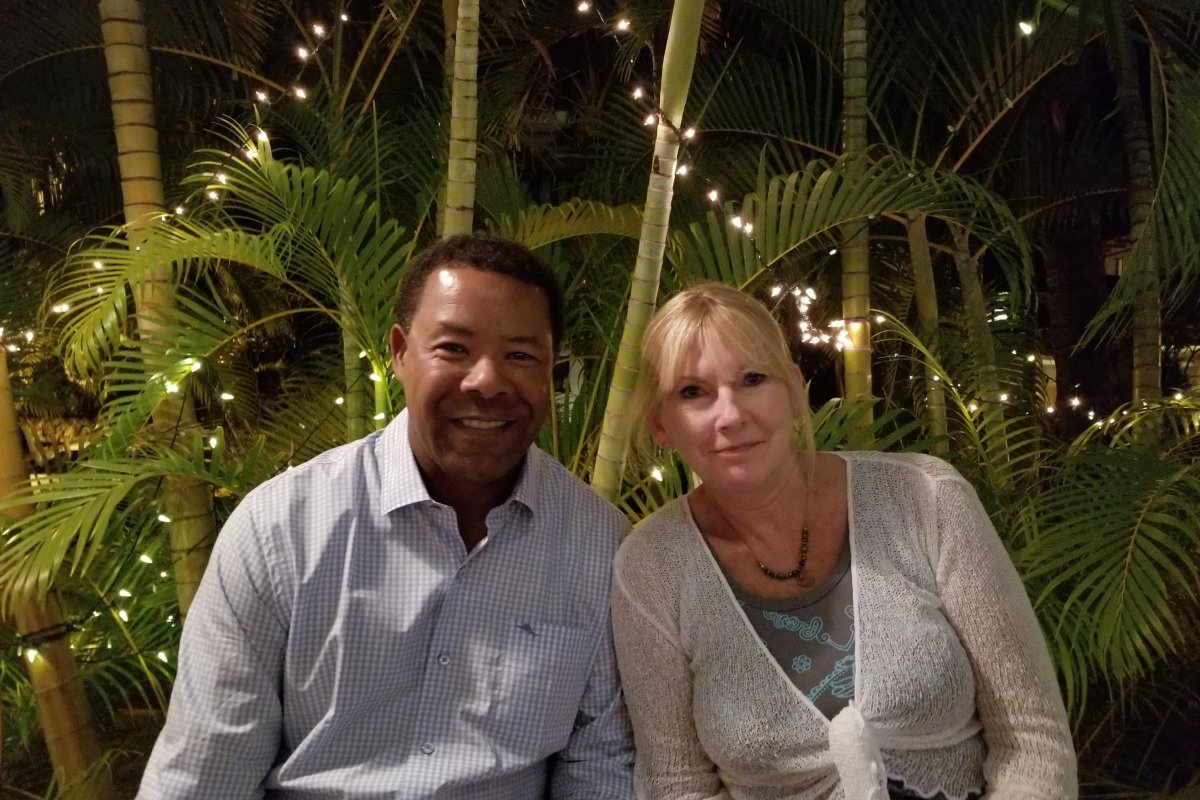Honoring the Patient Experience
Malama is a Hawaiian word meaning “to take care of,” an apt description for the relationship between Michael Turner (McIntire ’80) and his wife, Juanita (“Nita”), who wed in 1978. It also applies to the nutritionist, wound care specialist, speech therapist, and other patient support services staff assigned to the Turners when Nita was diagnosed with acute myeloid leukemia (AML) in October 2020—just a month after the couple retired to Hawaii. Mike recently made a gift to UVA Comprehensive Cancer Center to honor his late wife and help expand support services for cancer patients and their families.
Mike said Nita had always dreamed of moving to Hawaii, where the couple had vacationed for years while living in New Jersey. That dream became possible after Mike completed over 30 years as a successful investment banker and financial adviser. Yet, a month later, kuleana malama, roughly “a solemn responsibility,” characterized the weight on Mike’s shoulders. An oncology team in Honolulu confirmed Nita had AML following initial misdiagnoses from shingles to parasitic infectious diseases. “I felt alone out here in Hawaii,” he said, “entrusted by her [late] parents and her surviving family to take care of her in the hospital.” Mike also believed it was critical for Nita to seek a second opinion. “If you lose time doing the wrong treatment, the consequences could be permanent or perhaps fatal, and that alone is a good reason,” he explained.
Reaching out to his alma mater, nearly 5,000 miles away, was an easy decision. “For me, all things UVA felt familiar, safe, and trusted,” Mike explained. Charlottesville was, after all, where Nita gave birth to their daughter, Michelle, exactly 19 years after Nita was born. Mike was a third-year undergraduate at the time. “Classmates remember seeing us strolling Michelle around Grounds,” he recalled.

The spouse of one of those classmates, Adele Hoffmeyer, happened to be a current member (now chair) of the UVA Comprehensive Cancer Center Advisory Board. After Mike called on her, Hoffmeyer, who’d known the Turners since 1979, reached out to Cancer Center director Thomas P. Loughran Jr., MD, a renowned hematologist oncologist. She remembered that Dr. Loughran immediately agreed to talk with Mike and the doctors in Hawaii. “He was available to help anytime and in any way he could,” said Hoffmeyer. “It was such a relief to everyone that an expert in blood cancers would be able to offer a second opinion to ensure Nita got the best care possible.”
After Dr. Loughran and Karen Ballen, MD, chief of the Division of Hematology and Oncology at UVA Health, confirmed Nita’s diagnosis, she began treatment in Hawaii. Mike said Nita’s clinical care was greatly enhanced by non-medical support services personnel, including a nutritionist who enabled her to enjoy a “regular diet,” speech therapists who helped her overcome difficulties swallowing, a wound care specialist who assisted with skin lesions and daily dressing changes, a case manager overseeing rehab, and a hospital chaplain whose concern and compassion extended beyond the patient to include her most loyal caregiver, her husband. Some taught Mike how to help care for Nita.
“No one knows how to have cancer,” said Christi Sheffield, director of Cancer Screening & Supportive Care Services at UVA Health. She defined cancer support services as “all of the things that patients and families need as they are getting a cancer diagnosis and traveling through active treatment and then into either long-term survivorship or end of life.” Sheffield’s department has provided UVA Health cancer patients everything from physical, occupational, and mental health therapy to financial education and transportation assistance.

For Mike and Nita, support services went hand-in-hand with medical care. A balance of both, bolstered by uplifting visits from Michelle, an academic adviser at a community college in Colorado, led to encouraging news. By June 2021, just before the Turners’ 43rd anniversary, Nita was in full remission. Then, in October 2022, the side effects of Nita’s chemo treatments left her with low platelets, and she had to cancel a planned trip to Charlottesville for a UVA football game. Commenting on Nita’s show of grace and patience upon her unexpected readmittance to the hospital, Hoffmeyer called her “the sweetest person I know,” a sentiment echoed by everyone from high school friends to neighbors and classmates at Mike’s reunions.
On Dec. 15, Nita succumbed to post-surgical complications, exacerbated by her AML history and recovery. During her treatment, nothing troubled her more than noticing patients around her who were going through the same ordeal alone, without the emotional support she had from family and friends. Mike wanted to honor Nita’s kindness and empathy for fellow patients. The Turners had a history of engagement with UVA through sporting events, class reunions, and giving programs, including the gift of an endowed athletic scholarship fund. In considering his family’s philanthropic options, Mike said he was drawn to UVA Health’s support services for cancer patients. “The existence of the category alone really impressed me,” said Mike, who explained that he sees a direct link between support services and medical treatment outcomes.

It’s easy to understand why. Imagine a single mom who is diagnosed with cancer. Her prescription has a three-figure copay that forces her to choose between picking up her medication or paying her electric bill. She can’t arrange childcare or afford transportation for an office visit. Access to financial support services may determine whether she gets care at all. These are the kinds of logistical, mental, and emotional stresses of a cancer diagnosis that UVA Health’s support services staff can help patients navigate, and that can make all the difference in their treatment and recovery. Studies published in Frontiers in Oncology found a relationship between chronic stress and cancer progression. In patients with cancer, stress was linked to tumor growth and a weakened immune system, which is further depleted during cancer treatment.
The Turners never took for granted that they had “a collection of resources that others may not enjoy,” from comprehensive insurance to savings for retirement, said Mike. Recognizing the universal importance of patient support services, Mike made an estate gift and immediate donation to UVA Comprehensive Cancer Center in 2023 to create the Juanita L. and Michael A. Turner Cancer Patient Care Fund.
“Gifts like this are incredibly meaningful and impactful because they give us the time and space to be intentional about how we grow and where we put and prioritize our resources,” Sheffield said.
There is another reason patient support services deserve philanthropic consideration. According to Blake Herring, MSN, RN, administrator of UVA Health’s oncology service line, “Support care services, crucial for holistic patient care, often lack insurance reimbursement, leading to funding challenges and limited availability. Philanthropic support from individuals becomes vital, filling the financial gaps to maintain and enhance these services and ensuring all patients have access to comprehensive care beyond medical treatment. This not only supports the sustainability of support services but also promotes equity in healthcare access, highlighting the essential role of philanthropy in healthcare.”
For Mike, it is fitting that the fund bearing his wife’s name reflects “her caring and kind spirit” as well as their experience. He noted that he kept a diary during Nita’s treatment. He said he suspected many patients and families do the same and mused that, like him, their journals would be less about chemotherapy, blood counts, and transfusions than "about how they felt, about their anxieties and fears and also their sources of encouragement and other forms of support.”
Learn how you can support UVA Health's efforts to improve cancer patient care by contacting Corley Raileanu, Executive Director of Development, Cancer Programs, at corley@virginia.edu or 770.851.1904 or call 800.297.0102.

